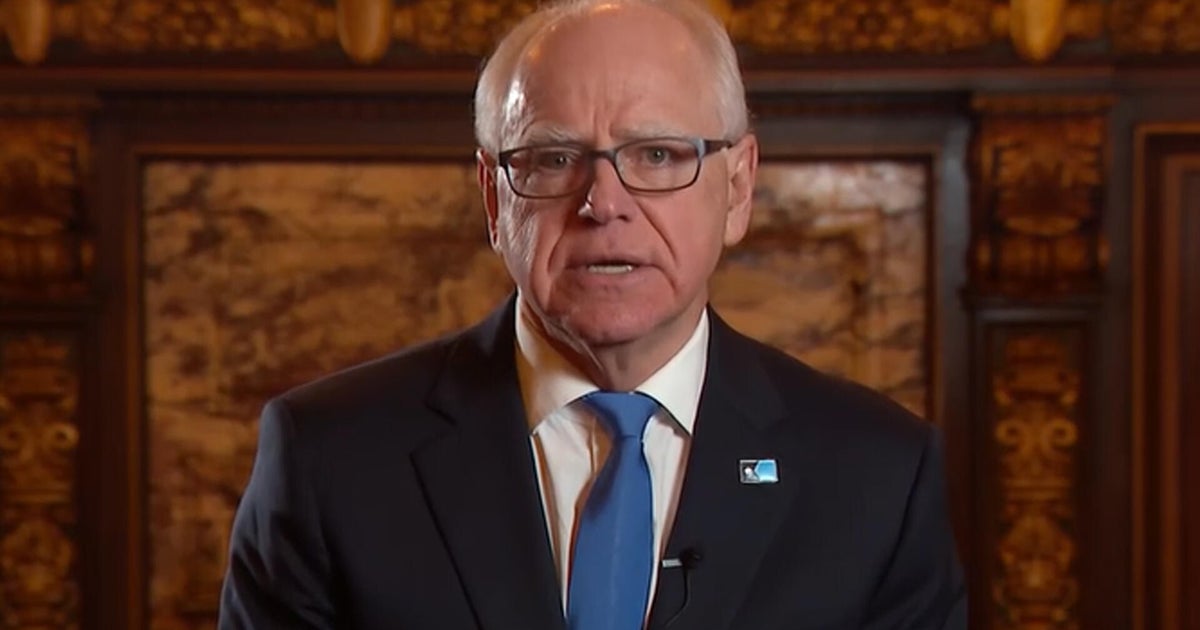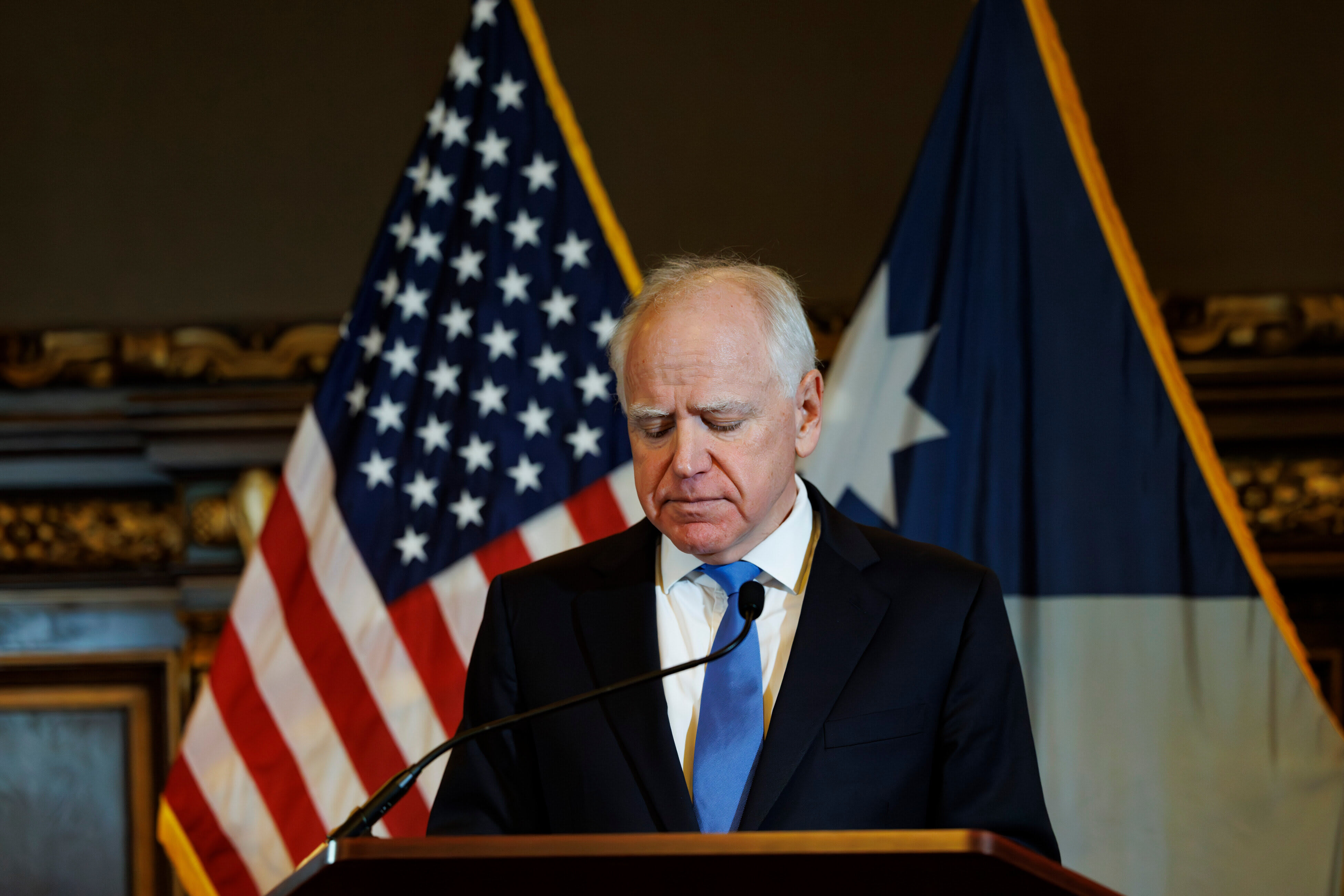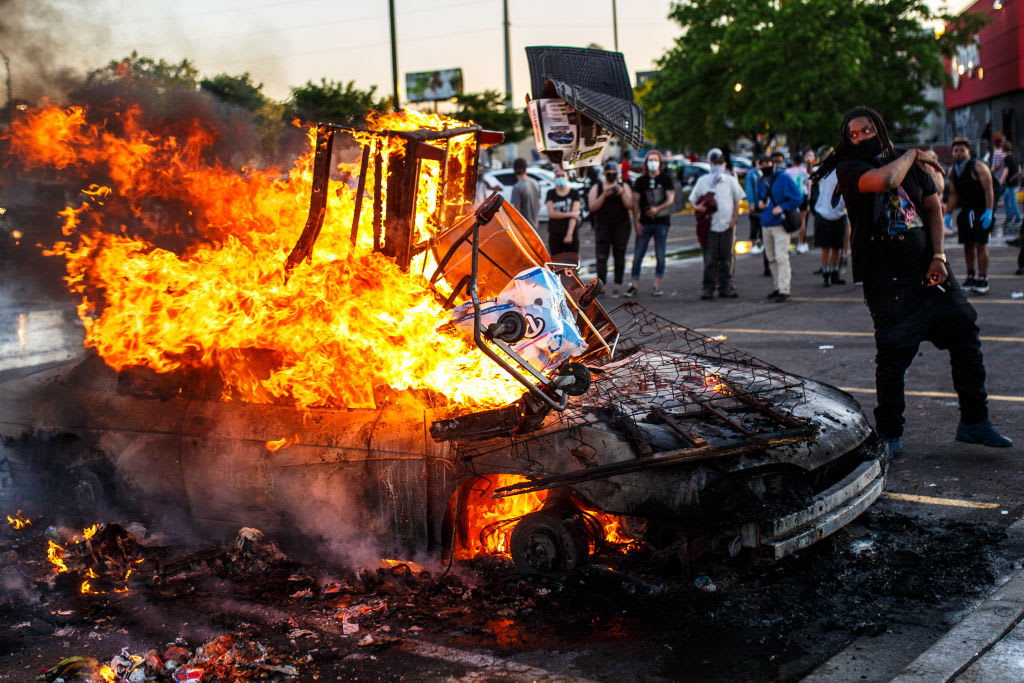Minnesota Governor Tim Walz and hospital leaders urge people to wear masks and keep Thanksgiving gatherings small
Minnesota Governor Tim Walz and hospital leaders urged people Thursday to wear masks in public and limit Thanksgiving gatherings to people in their household amid a COVID-19 surge that prompted the governor to announce new restrictions. The governor and doctors stressed the importance of behavior change in order to preserve hospital capacity and protect health care workers as authorities announced over 3,000 people in the state had died from the coronavirus.
"We're up here today because we are perilously close to not being able to even collectively, with all of our best efforts and innovative care models, take care of everybody that we need to take care of in this state," Dr. Penny Wheeler, president and CEO of Allina Health, told reporters.
Walz announced Wednesday that new restrictions, which will be in place on Thanksgiving, target a number of social activities, including gatherings between households, indoor dining and youth sports. Walz said the restrictions will go into effect starting Friday and will last until December 18.
"We understand that it's hard not to celebrate Thanksgiving with the people you love," Dr. Cindy Firkins Smith, president and co-CEO of Carris Health, said. "We all know that. We don't get to either. The people working in the hospital not only don't get to celebrate Thanksgiving with the people they love, they're going to be watching people die that day, and they don't want to watch you die at Christmas."
The governor ordered residents not to hold gatherings with people from other households and said indoor dining will also be halted. Indoor fitness centers will also be closed, and any organized adult and youth sports are suspended.
Bowling alleys, theaters and bingo halls will be closed too. Receptions, private parties and other celebrations are also prohibited, and even outdoor events and gatherings with large numbers of people are being put on hold.
"I understand it's not easy and it's not fair," Walz said. "But it's a sacrifice that we need to make. If we don't do that, and we continue to spread, we will with absolute certainty put our hospitals at risk, and those that need the care, as well as the care providers."





